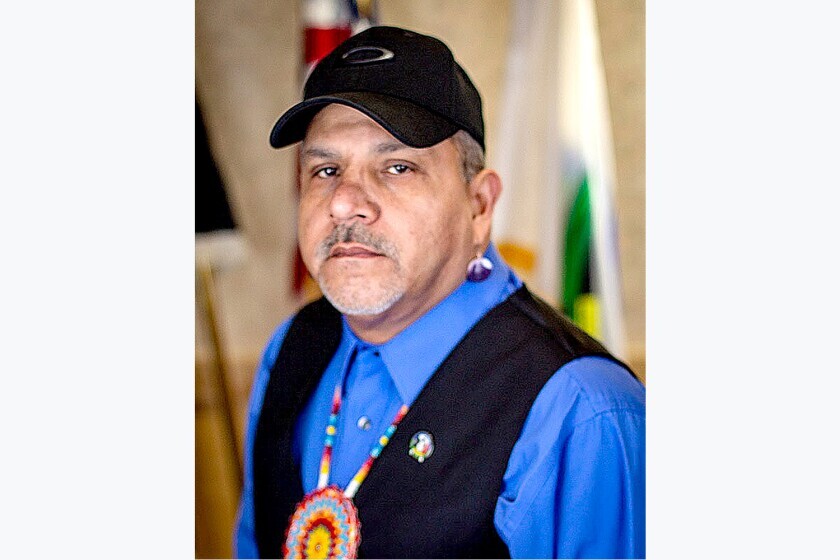ST. PAUL — Minnesota tribal leaders and activists are hailing the U.S. Supreme Court’s upholding of the Indian Child Welfare Act as a major victory for tribal sovereignty. But even after this week’s decision, they say much more must be done to protect their rights and address historical injustices.
At a Friday, June 16, news conference at a shelter for American Indian youth in St. Paul’s Frogtown neighborhood, tribal leaders, U.S. Sen. Tina Smith, DFL-Minn., and Lt. Gov. Peggy Flanagan celebrated the Supreme Court’s decision to uphold the act, which aims to keep adopted Native American children closer to their families and culture.
ADVERTISEMENT
Fond du Lac Band of Lake Superior Chippewa Chairman Kevin Dupuis Sr. said the challenge to the act initially brought by white families and the state of Texas, which eventually ended up before the highest court in the land, was an attempt to undermine tribal sovereignty. He said that while it was a time for tribes to rejoice, the fight to preserve rights is ongoing.

“Sovereignty doesn't mean that we sit back and we just wait now. We prepared ourselves, which every other state should have done,” he said, referring to a new Minnesota law reinforcing ICWA protections. “But it will come again and will come in different forms, whether it's after Indian gaming or other things.”
The ICWA, which became law in 1978, was a response to what many saw as an alarming number of Native American children being removed from their homes by social services and being placed with white families.
Before the act took effect, anywhere up to around 25% to 35% of Native children were getting removed from their homes, and about 85% went to families with no tribal connections, according to two studies from the era. A study from Casey Family Programs, a national child welfare and foster care foundation, found that the number of Native American/Alaska Native from 27% in 2010 to 38% in 2020.
To slow the trend, the ICWA places rules on placing Native children in adoptive families or foster homes. Custody priority goes first to extended family, then to tribe members, and then to other tribes. The act does not stop non-Native families from adopting Native children.
Leaders from White Earth, Leech Lake and Fond du Lac had already planned Friday to join Smith and Flanagan, a White Earth Nation member, to discuss the pending decision and what it could mean for Indigenous people in Minnesota.

But the news came earlier than expected: justices of the U.S. Supreme Court had ruled to uphold the Indian Child Welfare Act in a 7-2 ruling released on Thursday.
ADVERTISEMENT
Also present was Robyn Bradshaw, whose years-long fight to get custody of her granddaughter was one of the cases involved with the ICWA Supreme Court case, Brackeen v. Haaland.
“It took so many years to build this but we finally did it,” she said, telling the audience about the challenges of getting her granddaughter out of foster homes.
Activists and tribal leaders hailed the decision as a significant victory for tribal sovereignty but agreed that the federal government has to do much more to address historical injustices, including boarding schools that separated Native children from families and attempted to strip them of their culture.
White Earth Nation Executive Director Laurie York said the federal government should financially support Native language immersion schools and other programs aimed at preserving the culture and languages of tribal nations. By doing that and addressing issues that feed into the need for child welfare in the first place, such as addiction, custody questions will not be as big of a problem to begin with, she said.
“We need to go further upstream. We need to have prevention efforts, we need to start with restoring everything that was taken,” she said. "We have to stop the trauma that our children face and our families face every day because that trauma reinvents that cycle that we're trying to break.”
In anticipation of a ruling in the Brackeen case, Minnesota lawmakers earlier this year passed legislation aimed at reinforcing Native family custody protections in the state. Minnesota Indian Family Preservation Act adapted state law so protections would remain in place if the Supreme Court struck down the federal ICWA.
That bill passed both the House and Senate with just one vote against, and Gov. Tim Walz signed it into law in March in anticipation of a decision by the court.
ADVERTISEMENT
Minnesota is one of 14 states that have enacted legislation to protect the ICWA, according to a review by the American Civil Liberties Union. North Dakota of the act in 2023. South Dakota does not have a state-level law.













